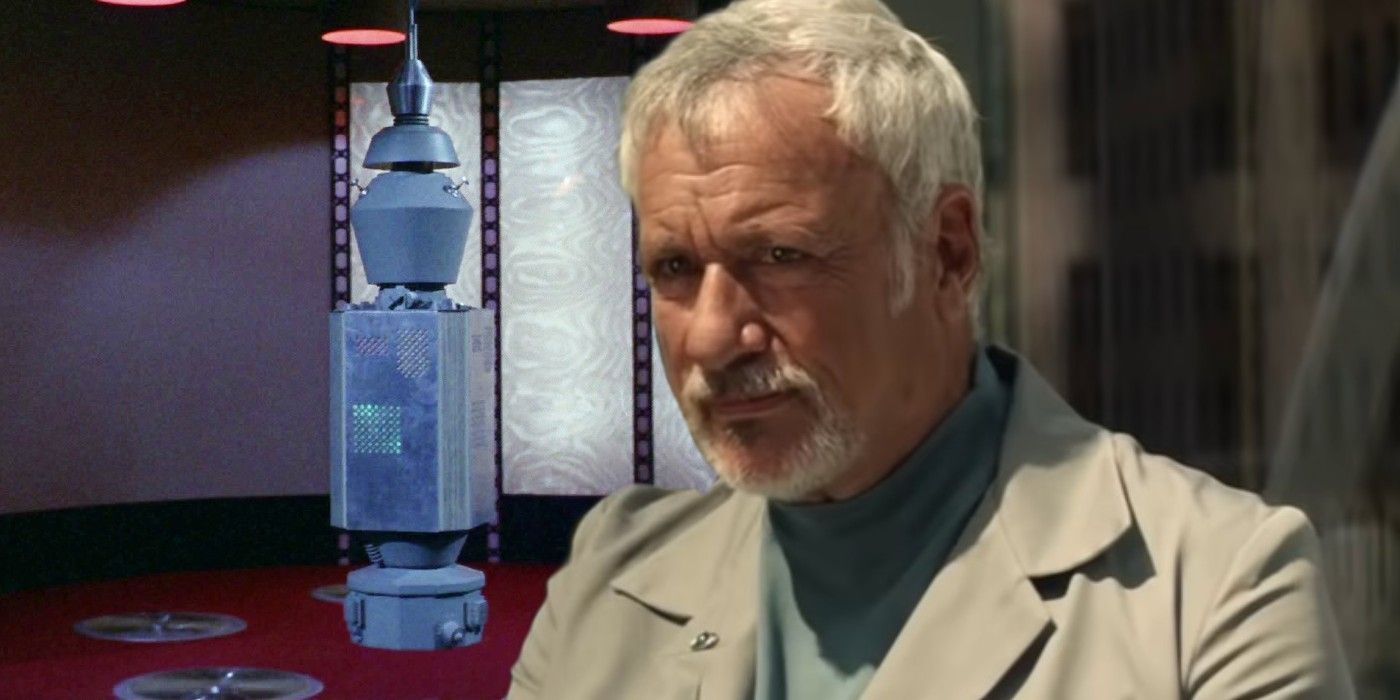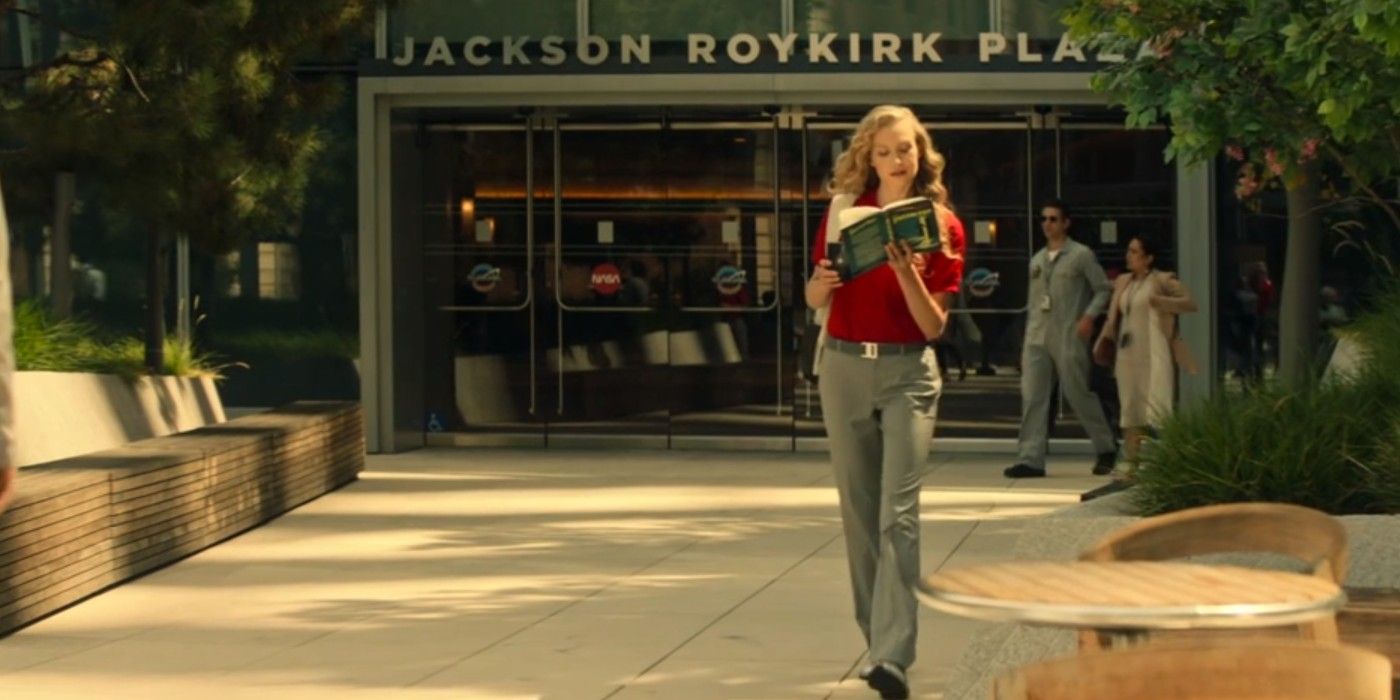Star Trek: Picard's latest Easter egg - a nod to Captain Kirk's Enterprise adventures - does not age well. It's Star Trek IV: The Voyage Home all over again in Star Trek: Picard season 2, as Jean-Luc and a few lucky companions travel back in time to the unfamiliar surrounds of modern day Los Angeles. In order to fix a dystopian future created by an out-of-sorts Q, Team Picard slingshots to 2024 - long before the five-year mission of James T. Kirk's Enterprise. At this point in Star Trek history, mankind is taking its first tentative steps toward space exploration, and 2024 has been riddled with nods to the "Europa mission", which very likely plays a role in Q altering history.
And it's Q's interest in Europa that leads to Star Trek: Picard season 2's Jackson Roykirk Easter egg. In the final moments of episode 4 ("Watcher"), Q turns up at Europa mission headquarters stalking Renee Picard - the great, great cousin of Jean-Luc - while rambling something pretentious about "playing the game" and "choking on fear." The scene takes place at "Jackson Roykirk Plaza," which also includes a bust of the titular cyberneticist alongside an inscription reading, "The Singularity will occur when machine intelligence is smarter than us. And frankly, I can't wait." That's the kind of statement that could come back to bite a guy.
Jackson Roykirk features in Star Trek season 2's "The Changeling," which sees Captain Kirk's Enterprise crew encounter a probe called Nomad, created by Dr. Roykirk in Star Trek's 2002. Designed as a "perfect thinking machine, capable of independent logic," the probe launched out into space seeking new life forms. Over 200 years later, the Enterprise runs into Nomad, finding it greatly advanced and vastly more powerful after merging with alien technology. The upgrade corrupted Nomad's programming, and turned the humble probe into a weapon of mass genocide that wipes out any species deemed imperfect. Deducing Earth will soon find itself in Nomad's firing line, Kirk uses the power of logic to force Nomad into self-destruction.
There's a dark irony in Star Trek's 2024 celebrating Dr. Jackson Roykirk's vision... when that very same vision ultimately results in billions of deaths and the near-destruction of Earth. Roykirk didn't equip Nomad with a technological capacity to kill and destroy - that came thanks to the alien merger - but he did create Nomad as an independent artificial intelligence and - as sci-fi stories tell us ad nauseam - that's rarely a good idea. Roykirk's wish for machine intelligence to outstrip mankind's is even etched onto his memorial bust in Star Trek: Picard season 2's final scene. Though entirely unintentional, Roykirk's gift of independent logic seeking out organic life led to Nomad deeming certain species "imperfect" and worthy of destruction, so while the scientist himself "couldn't wait" for artificial intelligence to develop, the poor folks of the Malurian system might disagree.
In Star Trek's 2024, the world still views Jackson Roykirk squarely as a pioneering scientist worthy of having a plaza named in his honor, which is true. But that adulation fails to spot the red flags behind Roykirk's philosophy. Had Nomad not been Shatner-ed into submission, it very well might've destroyed Earth. That would, of course, include Jackson Roykirk plaza, and the accompanying tribute statue - the inscription of which begs for the day machines grow beyond organic life. The real tragedy lies in how Nomad would kill everyone before they could appreciate the irony.
The chasm between how Star Trek: Picard's past timeline celebrates Jackson Roykirk and how Nomad becomes a genocidal problem in Star Trek: The Original Series serves as another example of the shadow hanging over 2024's past timeline. On one hand, the Europa mission promises a brighter future; on the other, Los Angeles is rife with poverty and discrimination - not to mention Star Trek's World War III kicks off in 2026, only two short years after Picard's current temporal location. Unable to recognize its own missteps, humanity is sleepwalking into disaster... whether in two years or 200.
Star Trek: Picard continues Thursdays on Paramount+.


